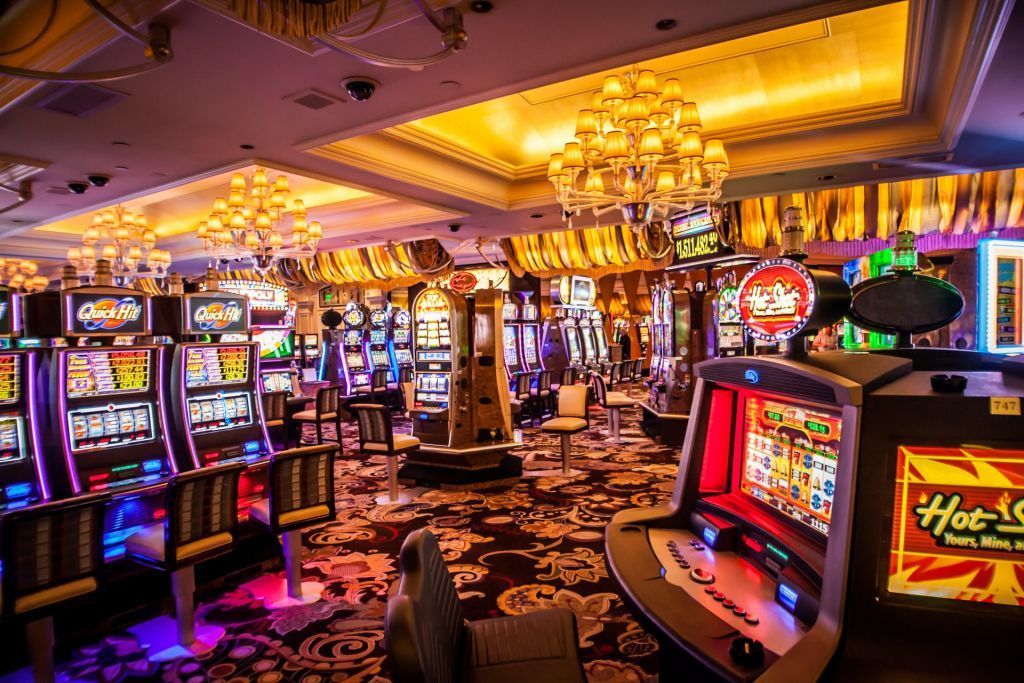
Gambling in casinos has long been a subject of interest and debate, attracting millions of players globally. With a blend of luck, skill, and the excitement of uncertainty, casino games offer an exciting escape from everyday life. However, as entertainment becomes ever more accessible, it invites a more thorough examination of the ethical implications surrounding these games.
At the heart of the discussion lies the question of whether casinos promote safe gambling or take advantage of at-risk individuals. The allure of potential winnings versus the truth of losses can create a complex situation, and understanding this balance is essential for both players and operators. As we delve into the ethics of casino gaming, we will explore the responsibilities of casinos, the effects on society, and the measures that can be taken to foster a healthier gaming environment.
The Impact of Casino Gaming on Society
Gambling in casinos has a considerable influence on the community, affecting not only the financial landscape but also interpersonal dynamics and local frameworks. The revenue generated from casinos can lead to job creation and boost regional economies, as they provide multiple employment opportunities in multiple fields including food and beverage, entertainment, and retail. However, while the economic advantages can be significant, communities often struggle with the possible negative impacts that arise from higher gambling activity.
Additionally, the presence of casinos can lead to an rise in gambling addiction, presenting serious challenges for players and families. The excitement of casino games can quickly transform into a compulsive habit, affecting connections with others and leading to financial instability. Many players may struggle with the loss of control over their gambling habits, resulting in a need for community support services and interventions to address this increasing issue. The social cost of addiction can ripple through families and neighborhoods, creating an urgent need for responsible gaming initiatives.
In addition to the economic and social ramifications, casino gaming often reflects cultural attitudes towards uncertainty and entertainment. It can foster a sense of joy and leisure, attracting visitors and boosting tourism. However, this allure may also mask the broader implications of gambling as a form of entertainment, raising ethical questions about its promotion and availability. As communities weigh the advantages and drawbacks of casino gaming, the need for responsible practices and regulation becomes increasingly critical in ensuring that the positive aspects are maximized while minimizing the negative effects.
Moral Issues in Gambling Practices
The ethics of casino operations often center around the potential for addiction and its effects on people and families. Gambling can lead to significant financial distress, impacting not only the gamblers but also their loved ones. As people become entrapped in the allure of winning, many lose track of their budget, which can result in catastrophic outcomes such as insolvency. This poses moral questions about the responsibility of gambling establishments in promoting safe gaming habits and providing support for those who may be struggling with betting addiction.
Another major concern is the promotion of gambling to at-risk populations. Gambling establishments often aim at low-income people or neighborhoods with the promise of quick gains, which can continue patterns of financial struggle and hopelessness. In this situation, the morality of advertising strategies used by casinos come under scrutiny, as they may exploit the need of individuals seeking an way out from economic troubles. This manipulation raises ethical questions about the honesty of the gambling industry and its responsibility to protect its most vulnerable patrons. non GamStop casinos 2025
Additionally, the effect of gambling gaming on the community as a whole cannot be overlooked. While some argue that casinos create employment and stimulate local economies, others point to the community costs associated with problem gambling, increased criminal rates, and a burden on public resources. Balancing financial advantages with the risk for social harm presents a complex ethical dilemma for lawmakers and gambling operators alike. The difficulty lies in finding a ethical approach that takes into account the welfare of people and society while still permitting for the enjoyment of casino gaming.
Regulation Structure and Responsibilities
The oversight framework pertaining to gaming operations is developed to ensure equity, trustworthiness, and participant protection. Multiple government entities and gaming commissions establish and apply regulations that dictate how gaming games operate, the guidelines for product creation, and the protocols for processing prizes. These regulations differ by locale but commonly involve permit requirements for operators and strict measures to avoid fraud and scams.
In also to governing bodies, gaming operators bear considerable responsibility in preserving principled standards within their venues. They must adopt safe player practices that support participant protection and education, including providing self-limitation options and providing information about the hazards connected to betting. Operators are also responsible for instructing employees to recognize signs of problem betting and understand the appropriate measures to support customers in need.
Furthermore, openness in gaming operations is vital for gaining and maintaining public trust. Operators should present clear data about the odds of games, promotional opportunities, and any connected dangers. By creating an atmosphere of honesty and accountability, casinos can help mitigate the potential negative impact of gaming while improving the overall gaming experience for all gamblers.